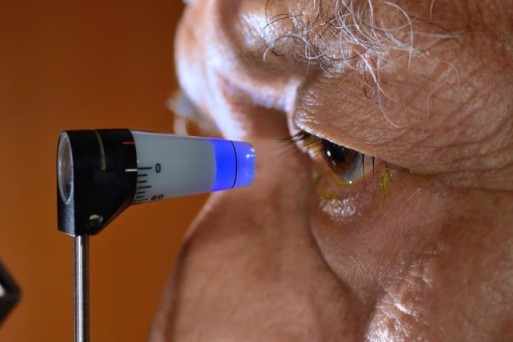
Credit: medicaldaily.com
An eye test is under development that may soon allow doctors to detect Alzheimer’s disease long before symptoms appear. The test, which is painless, noninvasive and inexpensive, detects the presence of beta amyloid — the substance believed to be responsible for the changes in the brain that cause Alzheimer’s symptoms — in the retina of the eye.
Although the technology for the retinal scans is still undergoing clinical trials, the results have been promising to date. For example, one version of the test, developed by Neurovision Imaging of Sacramento, California, correctly differentiated Alzheimer’s sufferers from those who did not have the disease 100 percent of the time. The technology, which uses fluorescent imaging to detect the distinct “signature” of beta amyloid plaques, is now undergoing further testing at Edith Cowan University McCusker Alzheimer’s Research Foundation in Nedlands, Australia. It could be available commercially as early as 2016.
A second version of the retinal scan, this one from Massachusetts-based Cognoptix, has also proven to be extremely accurate, correctly identifying 95 percent of Alzheimer’s sufferers in limited clinical trials.
Should further research bear out their benefit, retinal scans could revolutionize how doctors diagnose Alzheimer’s disease. Currently, patients must undergo a lengthy, expensive brain imaging study known as a PET scan and a painful lumbar puncture for the diagnosis to be confirmed. Because of the expense involved and the invasive nature of the procedures, these tests are typically performed only once every 18 to 24 months, which makes it difficult to follow the progression of the disease.

Credit: bu.com
The new technology, however, “is expected to be meaningfully less expensive than a PET scan, is noninvasive, and potentially more sensitive,” according to Neurovision Chief Executive Officer Steven Verdooner. Used in conjunction with already available neurocognitive testing and blood tests that detect biological markers for Alzheimer’s disease, the scans will be part of a “battery of tests that is cost-effective, fast, and non-invasive,” says Verdooner.
Although Alzheimer’s disease is, thus far, incurable, researchers believe that early detection and treatment is key to slowing the progression of the disease. The new retinal scans would also allow doctors to see much more quickly if a particular treatment is working and tailor treatment choices for individual patients much more accurately.

 New Eye Test May Allow Early Detection of Alzheimer’s Disease
New Eye Test May Allow Early Detection of Alzheimer’s Disease


 “In Case You Don’t Live Forever” by Ben Platt
“In Case You Don’t Live Forever” by Ben Platt
 Our Monthly Tip: Make an “In Case of Death” File to Ease Loved One’s Grief
Our Monthly Tip: Make an “In Case of Death” File to Ease Loved One’s Grief















